”For a time Europeans had invented an AMERICA peopled by noble savages, men uncorrupted by civilization; as Montaigne wrote, quoting Seneca, they were “fresh from the gods”. But Europe has never stopped reinventing the New World. The eighteenth-century debate took off when the Comte de Buffon, the famous French naturalist, proposed a thesis of American biological inferiority, producing an array of quasi-scientific reasons to explain “why the reptiles and insects are so large, the quadrupeds so small, and the men so cold, in the New World.” The idea quickly spread. In Britain, Oliver Goldsmith’s The Deserted Village portrayed a dank and gloomy land where no birds sang and no dogs barked.
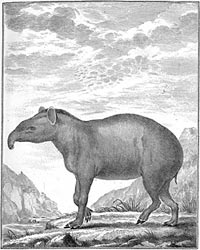
''Buffon referred to this environmental modification as degeneration. Animals removed from their ideal environment degenerated from their ideal form. ''
Soon the philosophe the Abbe Corneille de Pauw described America as “so ill-favored by nature that all it contains is either degenerate of monstrous” and Americans as “degenerate species of the human race, cowardly, impotent, without physical strength, without vitality, without elevation of mind”. As for the conquest of the New World, this, De Pauw concluded, “has been the greatest of all misfortunes to befall mankind’.” ( Arthur Schlesinger Jr. )
Was America a mistake? It was one of the great debates, the great debate of the enlightenment. Many felt the discovery of America did nothing but spread death, disease and destruction; an unmitigated disaster and curse to mankind. Others were more favorable.It was not so with Abbe Corneille de Pauw. He was full of malice. and he did indeed mean to talk America, though his motives remain a mystery. The amiable Benjamin Franklin said he was ”ill-informed and malignant,” the Italian Giovanni Carli called his ”Philosophical Investigation of the American ( 1768) a ”dream book”. Certainly de Pauw did write without fear and without research, but who did not in that day when history was philosophy teaching by examples?
America, de Pauw contended, was a recent creation and was only now emerging from the pangs of its creation. No wonder it was as yet unfit for human habitation; no wonder its miserable denizens; spread thin over this immense and forbidding territory, were primitive and degenerate. The air was unwholesome, the soil poisonous, and the vegetation infected; the surface of the earth was overrun with serpents and lizards, toads and rats; the air was filled with monstrous bats and insects that spread disease and death. The men, climbing down from those elevations where they had taken refuge from the Flood into ”vast prairies still covered with slough and slime”, were enervated by the vapors of the earth and the humidity of the air. The same climate and soil that condemned the natives to degeneracy condemned the Europeans who had the ill fortune to sail to the New World.
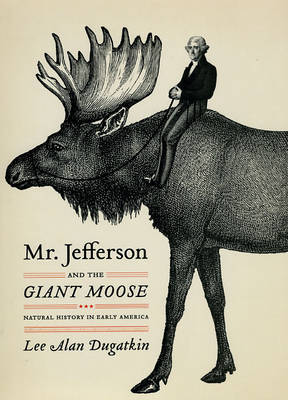
'' including the amazing story—referenced in the book's title—of Jefferson's shipment of a full-grown moose carcass to Buffon, in the hopes of definitively proving that North American fauna were every bit the equal of Europe's.''
”The two most cited promulgators of this so called ‘degeneracy theory’ were the Comte de Buffon and the Dutch abbe Corneille de Pauw. De Pauw, the more extravagant of the two, claimed that animals and people were deformed in America, with animals lacking tails, or having too many legs. Further, he claimed animals and people transported there from Europe would not fare well; dogs apparently lost their ability to bark and women lost their fertility at a much earlier age…De Pauw was also known to have influenced the thinking of Kant, who claimed the American climate made people too weak for hard work, too indifferent to pursue anything carefully, incapable of all culture, in fact lower than even the negro.”
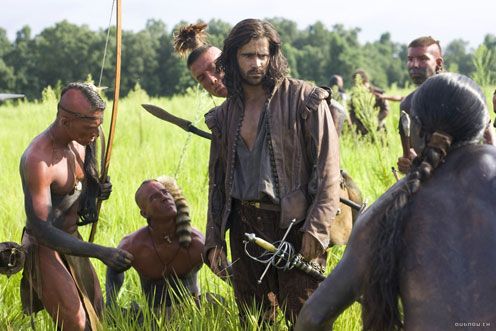
The New World. ''The film follows Pocahontas (Q'Orianka Kilcher) and her relationships with adventurer John Smith (Colin Farrell) and aristocrat John Rolfe (Christian Bale). Her remarkable journey of love lost and found takes her from the untouched beauty of the Virginia wilderness to the upper crust of English society as we witness the dawn of a new America. ''
You could ignore de Pauw, and as for Abbe Raynal, you neverknew where he stood.The Abbe Guillaume Raynal enthusiastically agreed. “How many calamities, which cannot be compensated ,” he asked, “have not attended the conquest of these regions?” No doubt Europe is in the New World’s debt for a few conveniences and a few luxuries. “But before these enjoyments were obtained, were we less healthy, less robust, less intelligent, or less happy? Are these frivolous advantages, so cruelly obtained, so unequally distributed, and so obstinately disputed, worth one drop of that blood which has been spilt for them?”
But are you to say to Dr. William Robertson, Rector of the University of Edinburgh and the greatest historian since David Hume. Robertson picked up the Buffon-Raynal thesis and incorporated it into his monumental ”History of America” which was published in 1777, the year of Saratoga, adding literary flourishes of pseudo-anthropology along the way. The soil was thin and sterile he said; vast
ps covered millions of acres of the interior; animals in the New World were visibly inferior and so, too, were the men. The very principle of life was less active and vigorous in the New World than in the Old. Certainly all this would have interested the Scotch-Irish along the frontiers of Pennsylvania and Virginia, but perhaps tey were too busy fighting Indians and founding commonwealths to read Dr. Robertson.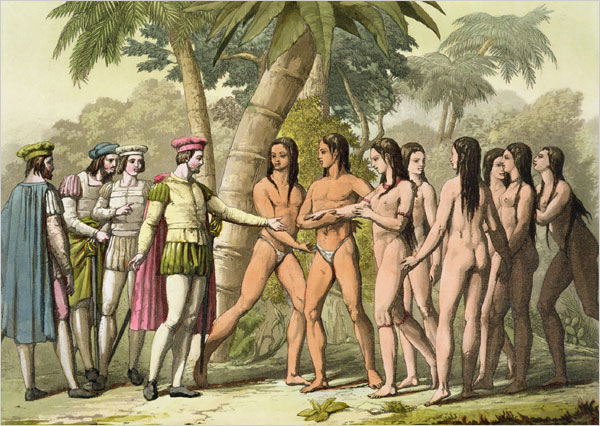
'' The new research suggested that syphilis originated as a skin ailment in South America, and then spread to Europe, where it became sexually transmitted and was later reintroduced to the New World. The origin of syphilis has always held an implied accusation: if Europeans brought it to the New World, the disease is one more symbol of Western imperialism run amok, one more grudge to hold against colonialism.''
Even among the most enlightened people, the period of authentic histo ry is extremely short, and every thing prior to that Is fabulous or obscure. It is not surprising, then, that the unlettered inhabitants of America, who have no soli citude about futurity, and little curiosity concerning what is past, should be altogether unacquainted with their own original. The people on the two opposite coasts of America, who occupy those countries in Amer ica which approach nearest to the ancient continent, are so remarkably rude, that it is altogether vain to search among them for such information as might discover the place from whence they came, or the ancestors of whom they are descended.* Whatever light has been thrown on this subject, is derived, not from the natives of Amer ica, but from the inquisitive genius of their conquerors.
With every argument, with every pamphlet, with every book, it became clear that the debate on America was really a series of debates that had long agitated European philosophers. With each passing year it became increasingly clear that those who took sides on the problem of America were really using the New World as a kind of stalking-horse for their own battles, campaigns and crusades. Foremost, America was inextricably involved in the controversy between the champions of nature and those of civilization. Jean Jacques Rousseau had announced that nature was good and society evil. Natural man was virtuous, innocent and wise; he was even noble. But civilization meant wretched and miserable cities and a countryside going to waste. It meant luxury and poverty side by side; it meant tyrannical government, vast armies, and navies and colonies and perpetual wars; it meant the Church, the priestcraft, the Inquisition. That was civilization.
Yet it was all very confusing. Voltaire’s ”Candide” was a heavy literary blow against the pretensions of society, yet he was on the side of civilization rather than nature. In England, Horace Walpole was never happy away from the court and the salons, and Dr. Johnson was never happy away from London. And how interesting that few of them had any real interest in America. Voltaire, to be sure, celebrated an imaginary Quaker paradise in Pennsylvania. But mostly they regarded the New World as something of a bore.
“A few acres of snow” (in the original French, “Quelques arpents de neige”) is a quotation from Voltaire popularly understood to be a sneering evaluation of New France’s — and, by extension, Canada’s — lack of mercantile value and strategic importance to France. It is regularly quoted by Canadians and particularly Quebecers who want to prove that Canada is worth much more than Voltaire’s dismissive perception. The quotation in full, found in Candide, is: “Vous savez que ces deux nations sont en guerre pour quelques arpents de neige vers le Canada, et qu’elles dépensent pour cette belle guerre beaucoup plus que tout le Canada ne vaut” (“You know that these two nations are at war over a few acres of snow near Canada, and that they are spending on this little war more than all of Canada is worth”).

''French Descriptions: "At certain times of the year the chief and his noblemen met early each day in a public place appointed for the purpose of consultation where the benches were built in the shape of a crescent. In the meantime the chief had ordered several women to prepare ‘cassina’ which was a drink brewed from the leaves of certain plants which were then filtered out. The drink had special powers, for it induced perspiration as soon as it had been drunk. Those who could not hold the drink down and vomited it out had to fast for three or four days after and were not asked to do important tasks or hold positions of responsibility in battle because they were considered unreliable. After drinking this brew they could fast for twenty-four hours. The fact that this drink strengthened the body and had no ill effects on the head was why..." no food was carried into battle, only the cassina, or black drink.'' Jacques LeMoyne
However, in practice the phrase is misremembered or misunderstood by most who quote it. In a popular version, Voltaire is said to have written: “La Nouvelle-France: quelques arpents de neige qui ne valent pas les os d’un grenadier français” (“New France: a few acres of snow that aren’t worth the bones of a French soldier”). In another rendition, he is quoted as saying: “quelques arpents de neige, habités par des barbares, des ours et des castors” (“a few acres of snow, inhabited by barbarians, bears and beavers”). Neither of these phrases appear anywhere in Voltaire’s body of work.


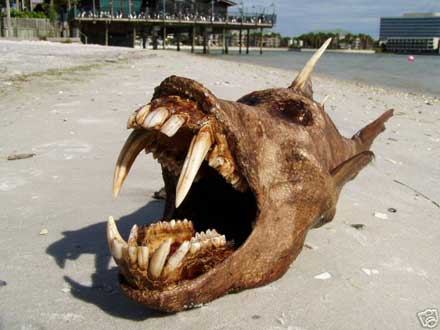


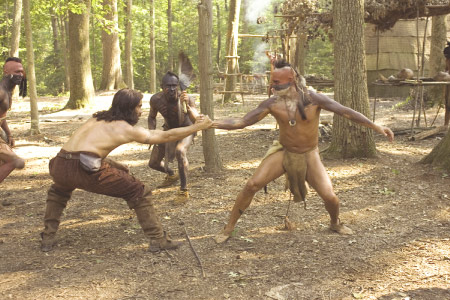




 COMMENTS
COMMENTS



